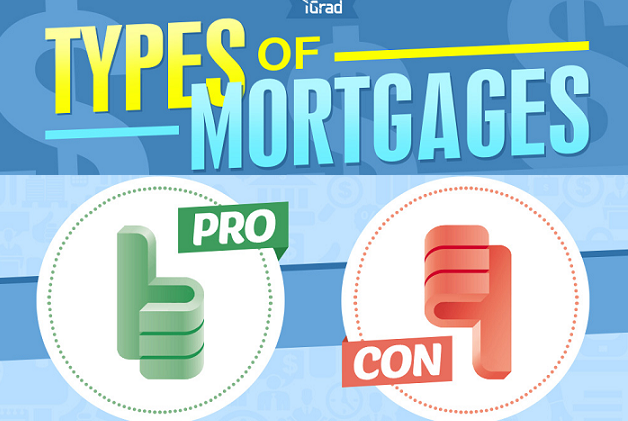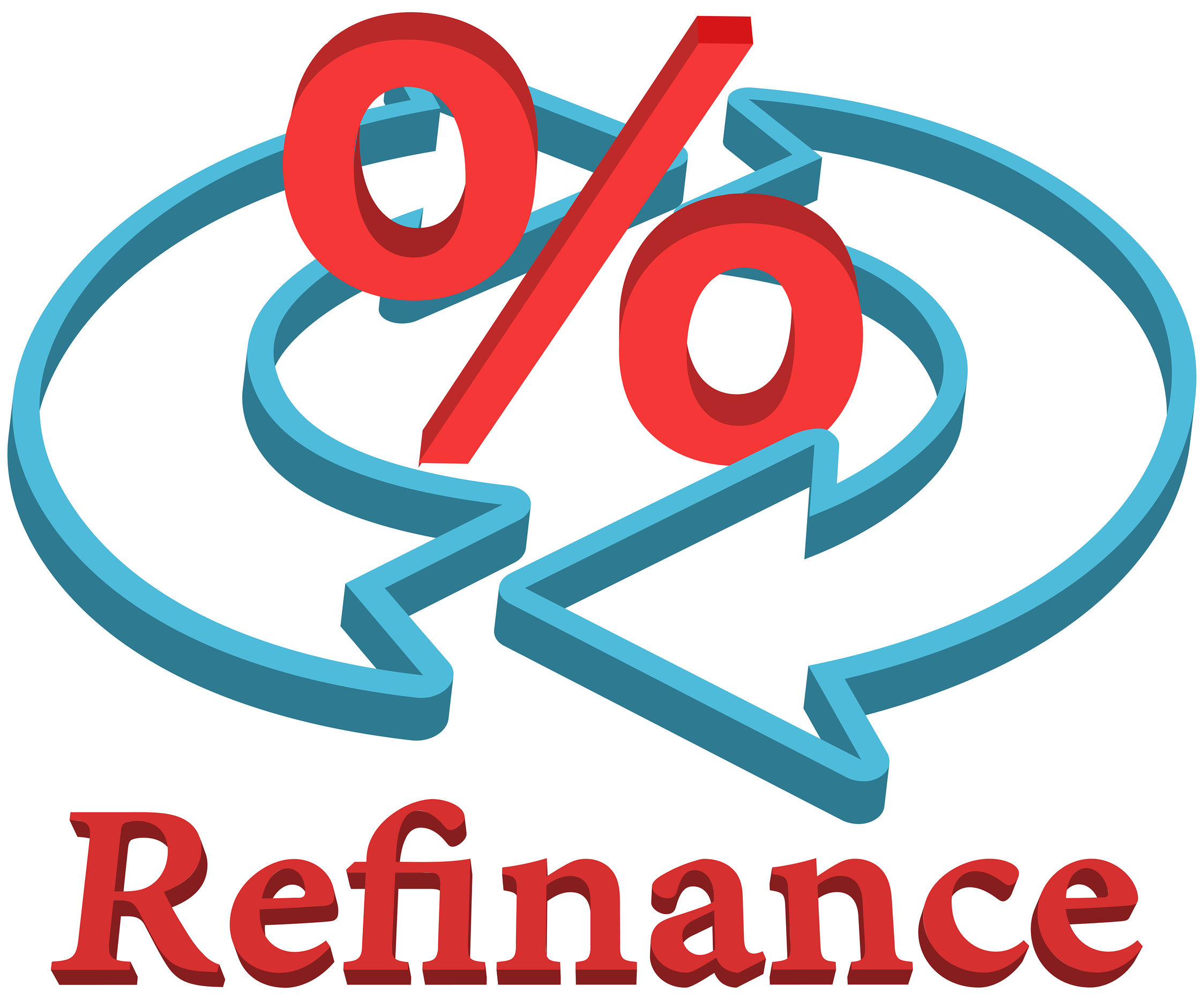There are numerous kinds of Mortgages, each with its own particular financing and interest cost, charges and adaptability. Every one of these things influence how much the credit expenses and to what extent it will be before it's paid off. A loan cost can be settled, drifting or a blend of both. Also, there are distinctive reimbursement structures to browse. It's sufficient to influence anybody's make a beeline for turn, so how about we separate a portion of these terms…

Fixed interest rate loans
With a settled rate home credit the loan fee we pay is settled for a time of a half year to five years. Toward the finish of the term, we can decide to re-settle again for another term or move to a coasting rate.
Favorable circumstances:
• We know precisely how much every reimbursement will be over the term.
• Lenders regularly contend with settled rate specials.
• We can secure lower rates if showcase loan costs are rising.
Inconveniences:
• Fixed rates frequently have constrains on the amount we can raise reimbursements or make additional installments without paying charges.
• If we take a long haul, there is a hazard coasting rates may dip under our settled rate.
• If we offer our property as well as break a settled advance we might be charged a 'break expense'.
Topped rates are where the loan cost can't transcend a specific point, yet will drop if skimming rates dip under the topped rate.
Gliding rate (or variable rate)
Moneylenders of gliding rate credits will lift or lower the loan cost as financing costs in the more extensive market change, regularly connected to the Official Cash Rate (OCR). This implies our reimbursements may go up or down.
Favorable circumstances:
• We have greater adaptability to roll out improvements without punishment, for example, paying off the advance early or changing the advance term.
• It's less demanding to solidify other, more costly obligation into drifting rate advances by obtaining more.
Inconveniences:
• Floating rates have generally been higher than settled rates.
• When rates go up the reimbursements additionally go up, putting a press on our financial plan.
A blend of settled and gliding
We can part a credit amongst settled and drifting rates. This gives us a chance to make additional reimbursements without charge on the gliding rate partition.
Part an advance can give us a harmony between the sureness of a settled rate and the adaptability of a coasting rate. The amount of our credit we have in each part relies upon which of these is more vital to us.

Repayment structure
Table loan
This is the most well-known sort of home credit. We can pick a term up to 30 years with generally moneylenders. A large portion of our initial reimbursements pay off the intrigue, while the greater part of the later installments pay off the essential (the underlying sum we obtained).
We can take a table advance with a settled rate of intrigue or a skimming rate.
Application expenses for table advances extend from nothing to over $1,000. Most banks charge around $200 to $400. This is frequently debatable.
Favorable circumstances:
• Table credits give the train of normal installments and a set date when they will be paid off.
• They give us the assurance of recognizing what our installments will be, except if we have a skimming rate, in which case reimbursement sums can change.
Detriments:
• Fixed normal installments may be troublesome for individuals with sporadic pay.
Revolving credit loan
Rotating credit advances work like a monster overdraft. Our compensation goes straight into the record and bills are paid out of the record when they're expected. By keeping the advance as low as conceivable whenever, we pay less intrigue since banks compute premium every day.
We can influence irregularity to aggregate reimbursements and re-attract cash up as far as possible. Some spinning credit contracts progressively diminish as far as possible to enable us to pay off the home loan.
Application charges on spinning credit home advances can be up to $500. There can be an expense for the everyday managing an account exchanges we do through the record.
Favorable circumstances:
• If we're efficient, we can pay off our home loan speedier. This likewise suits individuals with uneven salary as there are no settled reimbursements.
• Putting surplus assets into this record instead of a different bank account will give greater premium investment funds and furthermore keeps away from the expense on the investment account premium.
Inconveniences:
• We require train! It can be enticing to dependably spend up to as far as possible and remain paying off debtors longer.
Offset loan
A balance contract setup can decrease the measure of intrigue we pay on our home loan. Regularly intrigue is payable on everything of a credit. However, by connecting our credit to any funds or regular records we as of now have, we pay enthusiasm on significantly less. For instance, somebody with a $400,000 contract and $20,000 in reserve funds would just pay enthusiasm on $380,000. Subtract the investment funds from the aggregate credit sum, and we just pay enthusiasm to what's left side.
The more money we keep over our records from everyday, the more we'll spare, since premium is figured day by day. Connecting whatever number records as could be expected under the circumstances – whether from an accomplice, guardians, or other relatives – implies even less enthusiasm to pay.
Favorable circumstances:
• We pay less in intrigue and pay off our home loan quicker. Regularly there is no settled term.
Inconveniences
• The connected investment accounts don't acquire any premium when they balance a credit. So, enthusiasm on obligation is regularly higher than the premium we would procure on funds, which makes the counterbalance beneficial.
Reducing loan
Diminishing or straight line contracts reimburse a similar measure of vital with every reimbursement, except a lessening measure of intrigue each time. These are very uncommon in New Zealand. Installments begin high, however diminish (in a straight line) after some time. Expenses are like table credits.
Favorable circumstances:
• We pay less intrigue generally speaking than with a table credit on the grounds that early installments incorporate a higher reimbursement of foremost.
• These may suit borrowers who anticipate that their wage will drop, for instance, on the off chance that one accomplice intends to surrender work in a couple of years.
Inconveniences:
• If we can oversee higher installments, it is smarter to take a table advance with installments high for the entire term, so we pay less intrigue.
Interest-Only
We pay the intrigue just piece of our reimbursements, not the important, so the installments are lower. A few borrowers take an intrigue credit for multi year or two and after that change to a table advance. The ordinary table credit application expenses apply.
Favorable circumstances:
• We have more money for different things, for example, redesigns.
Inconveniences:
• Ultimately it costs us more. We will even now owe everything that we acquired until the intrigue just period closures and we begin paying back the advance.



